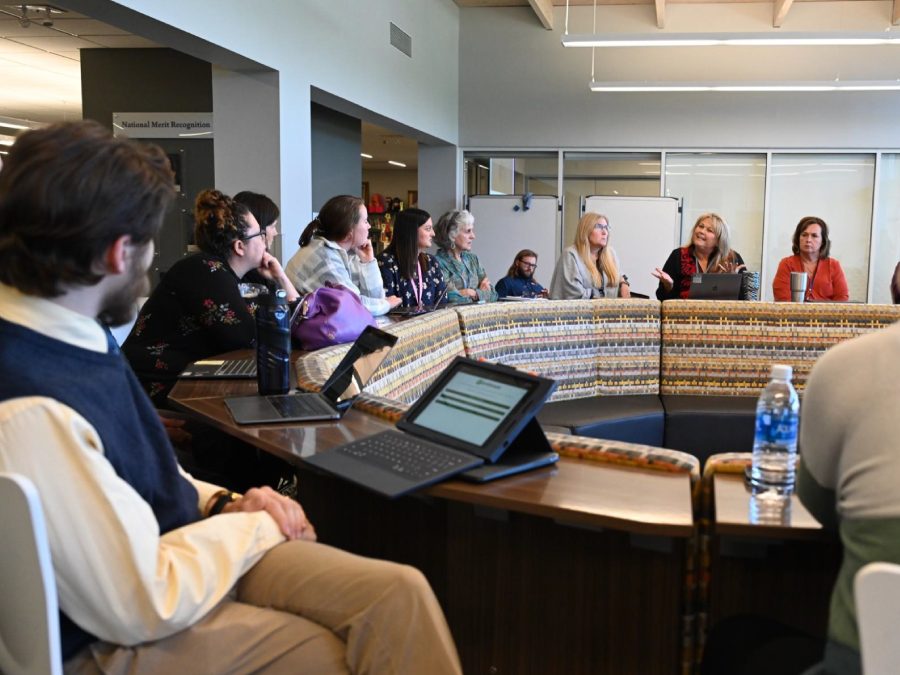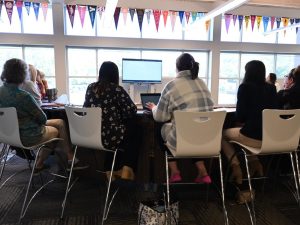

Teachers at Jackson Academy are not only helping their students learn; they are also learning from one another. JA offers Upper and Middle School teachers monthly programs called Teacher Tidbits, which are after-school professional development sessions where teachers hone their skills or gain new information.
Last Wednesday, Upper School Mathematics Teacher Amanda Smithers led a session on ZipGrade. This platform lets teachers create custom-made answer sheets, analyze test results, and allow students to review their individual correct and incorrect answers on tests by logging into the grading platform. The previous month, Director of Learning Diversity Beth Murray and Upper School Facilitator Lynda Morse offered a session for teachers on the subject of executive function.
 Murray said the executive function session she and Morse offered helped teachers better understand how brain development aligns with instruction in the classroom and achievement. “It is important to understand learning diversity with respect to learning differences, but truly understanding executive function is part of every student’s learning profile,” she said. “Over the last 20 years, much has been learned about maximizing retention by understanding how the brain matures. Teachers gain insight into the “why” students respond the way they do in and out of a classroom setting.”
Murray said the executive function session she and Morse offered helped teachers better understand how brain development aligns with instruction in the classroom and achievement. “It is important to understand learning diversity with respect to learning differences, but truly understanding executive function is part of every student’s learning profile,” she said. “Over the last 20 years, much has been learned about maximizing retention by understanding how the brain matures. Teachers gain insight into the “why” students respond the way they do in and out of a classroom setting.”
Murray said understanding executive function is vital during a student’s school years and throughout life. “Executive function growth is ongoing, and the student we see in our school setting will not be the student who graduates from college or begins a career,” said Murray. “Understanding brain development is the first part of being a better student as well as a better teacher. Executive function is the base level of knowledge we all need to understand ourselves as a lifetime learner.”
Head of Upper School Brandi Richardson believes that offering teachers opportunities to learn builds stronger schools, thus empowering and supporting both teachers and students. “Schools should constantly be evaluating professional development as a part of the larger goal of continuous school improvement,” said Richardson. “Teacher retention and rates of teacher self-efficacy are directly impacted by quality professional development. Many hours of research from educational leaders and those who study the psychological and sociological effects of collaboration, efficacy, and workplace happiness continue to suggest that environments where teachers can learn together and collaborate on goals and challenges yield higher rates of return for students. Empowered and supported teachers empower and support students!”
Richardson said Teacher Tidbits sessions are not only for learning: They build community as well. “Everything we do is student-centered, but my goal in bringing teachers together is to help them feel supported and routinely developed thereby raising student experiences in their classrooms,” she said. “We have a talented group of faculty members here at Jackson Academy, and I love to see everyone working together. Some of the most impactful changes arise from simple discussions and problem-solving sessions from classroom faculty!”

